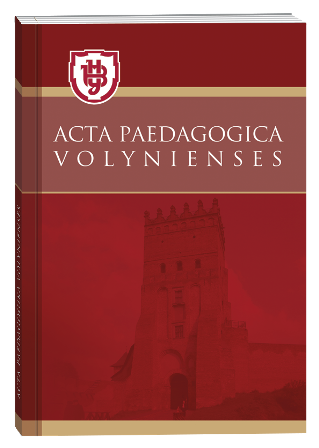SOCIO-PSYCHOLOGICAL DETERMINANTS OF ACADEMIC INTEGRITY VIOLATIONS
DOI:
https://doi.org/10.32782/apv/2025.3.16Keywords:
academic integrity, plagiarism, social factors, psychological factors, student motivation, procrastination, academic ethics, educational environmentAbstract
Academic integrity is considered a key factor in the development of higher education and in maintaining trust in scientific results. In Ukraine, its violations have become widespread, reducing the quality of the educational process and undermining the legitimacy of academic achievements. The article emphasizes the combination of social, institutional, and psychological factors that determine the behavioral patterns of students and faculty. The analysis shows that tolerance of legal nihilism and corrupt practices in society creates a favorable ground for lenient attitudes toward academic violations. Deficiencies in legislation and the long-standing absence of unified procedures for verifying academic work contributed to impunity and the reproduction of dishonest practices. Despite the formal institutionalization of integrity principles, actual practice demonstrates the persistence of the problem. At the same time, the study of individual student characteristics reveals that low motivation for learning, a lack of academic skills, stress, and procrastination significantly increase the risk of non-compliance with ethical standards. Excessive performance orientation and fear of failure also serve as grounds for rationalizing deception. It is determined that the social environment – peer norms, the example of teachers, family attitudes, and cultural traditions – sets the framework within which academic behavior is formed. When such frameworks tolerate deviations, violations quickly become widespread. An important factor is the role of faculty, since their professional and moral example establishes standards of academic culture. An additional challenge has emerged with digital technologies, which have enabled the fabrication of results and the use of generative artificial intelligence. It is concluded that overcoming the crisis effectively is possible only through the combination of measures at different levels: legislative, institutional, and individual-psychological.
References
Богач О. В., Кіршо С. М. Психологічні передумови порушення академічної доброчесності у студентській спільноті. Психологія: реальність і перспективи. 2019. № 12. С. 26–33. https://doi.org/10.35619/prap_rv.vi12.42
Драч І. І., Слободянюк О. М. Порушення академічної доброчесності: причини та ставлення студентів. Педагогіка формування творчої особистості у вищій і загальноосвітній школах. 2020. № 70. Т. 1. С. 220–227. DOI: https://doi.org/10.32840/1992-5786.2020.70-1.42
Міністерство освіти і науки України. Лист від 23.10.2018 № 1/9-650 «Щодо рекомендацій з академічної доброчесності для закладів вищої освіти». URL: https://zakon.rada.gov.ua/rada/show/v-650729-18
Про освіту : Закон України від 05.09.2017 р. № 2145-VIII. Відомості Верховної Ради України. 2017. № 38–39. Ст. 380. URL: https://zakon.rada.gov.ua/laws/show/2145-19
Aruğaslan E. Examining the relationship of academic dishonesty with academic procrastination, and time management in distance education. Heliyon. 2024. Vol. 10. No. 19. P. 1–14. DOI: 10.1016/j.heliyon.2024.e38827
Duliba Y., Petroye O., Pletsan P., Havryliuk A., Antonenko V., Antonova O. Academic Integrity in Higher Educational Institutions in Times of the Covid-19 Pandemic: World Experience and Ukrainian Realities. Revista Românească pentru Educaţie Multidimensională. 2022. 14(4Sup1). P. 01–17. https://doi.org/10.18662/rrem/14.4Sup1/656
Kennet A. M., Shkodkina Yu. A review of the factors behind academic integrity violations: comparing the United States and Ukraine. Business Ethics and Leadership. 2018. Vol. 2. No. 2. P. 84–96. DOI: 10.21272/bel.2(2).84-96.2018
McCabe D. L. Cheating among college and university students: A North American perspective. International Journal for Educational Integrity. 2005. Vol. 1. No. 1. P. 1–11. DOI: 10.21913/IJEI.v1i1.14. URL: https://doi.org/10.21913/IJEI.v1i1.14
Song J., Liu S. Dark personality traits are associated with academic misconduct, frustration, negative thinking, and generative AI use habits: the case of Sichuan art universities. BMC Psychol. 2025. Vol. 13. 633. https://doi.org/10.1186/s40359-025-02949-w
Zinchenko V., Ostapenko S., Udovichenko H. Introduction of Academic Honesty as a Necessary Prerequisite and an Important Component of Quality Education for Future Economists. Revista Romaneasca pentru Educatie Multidimensionala. 2021. 13(1). P. 81–95. https://doi.org/10.18662/rrem/13.1/361








